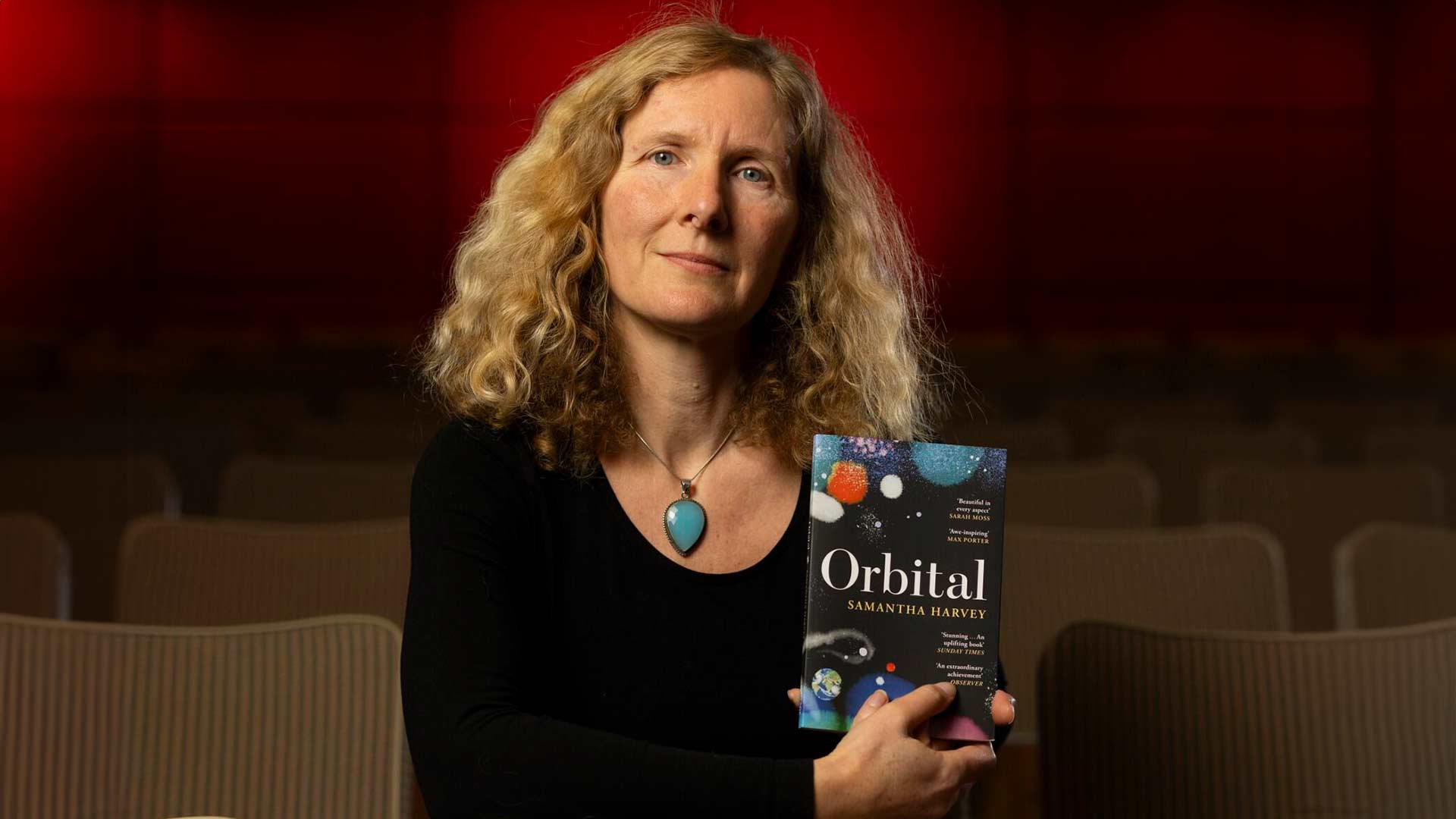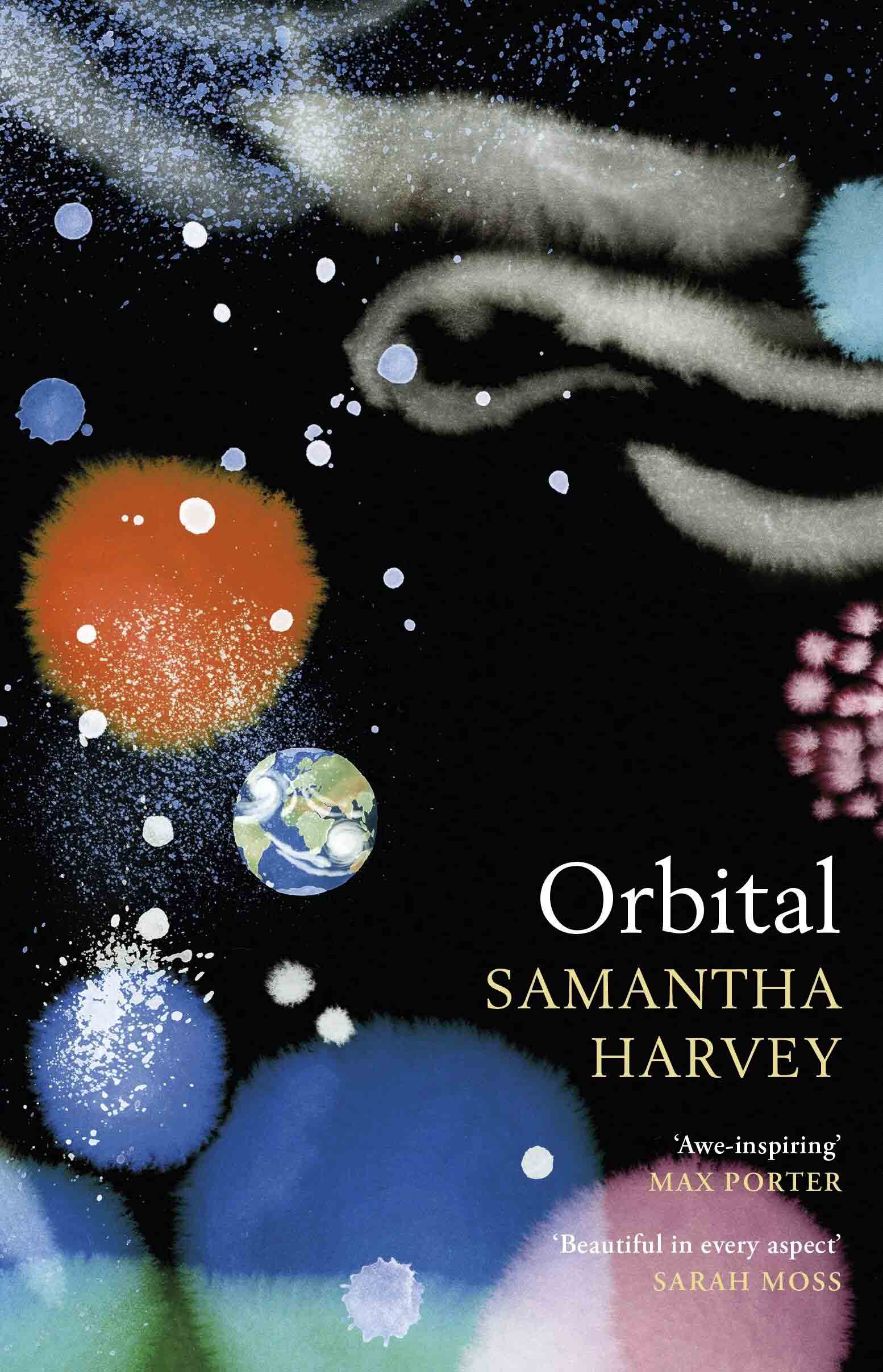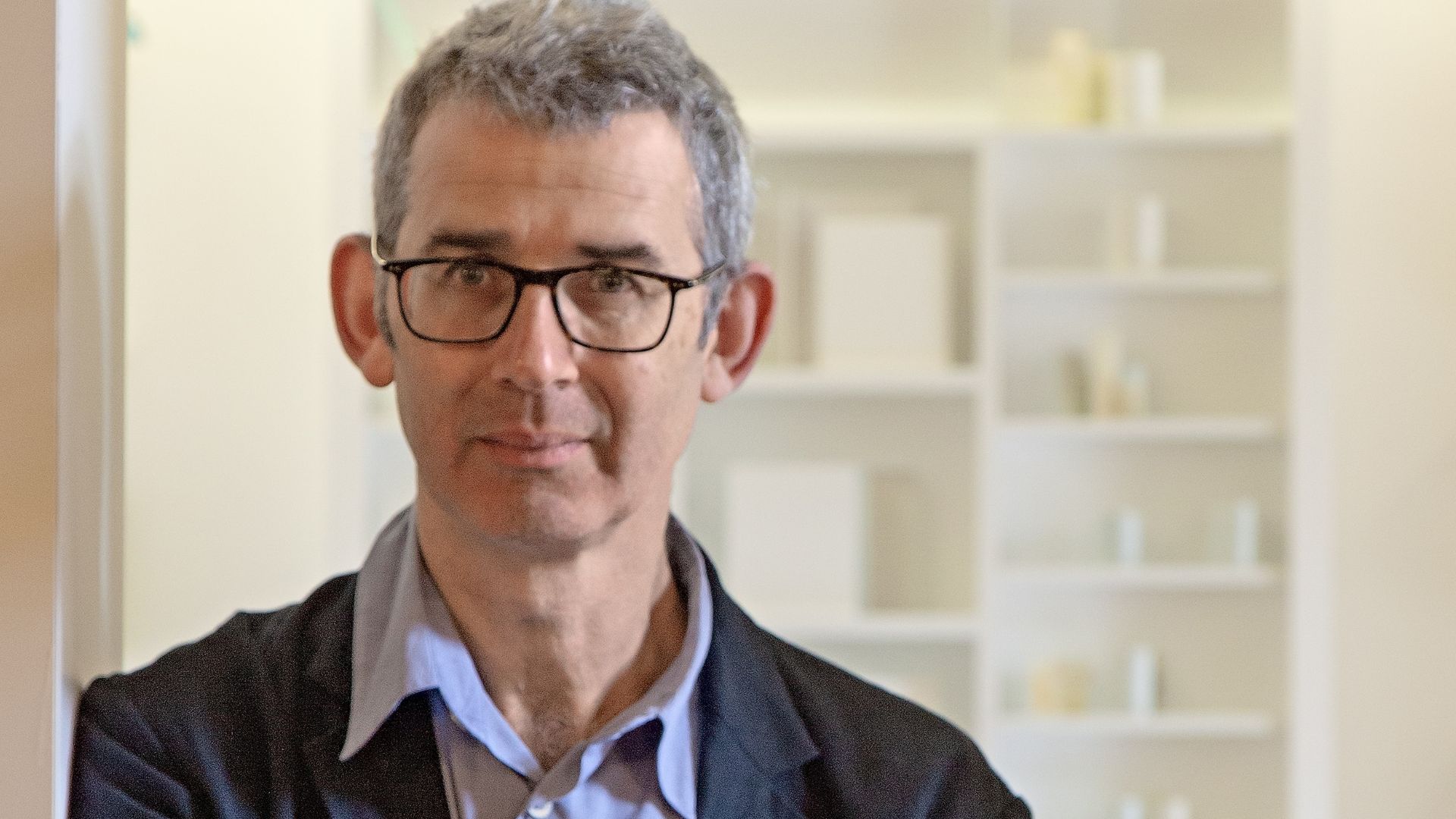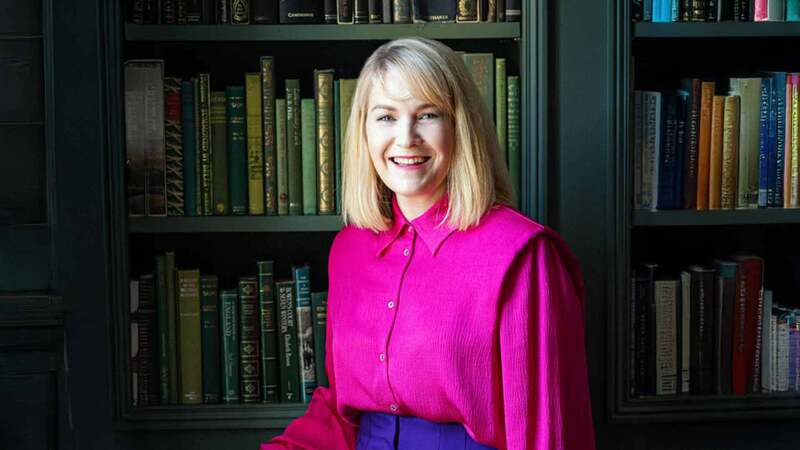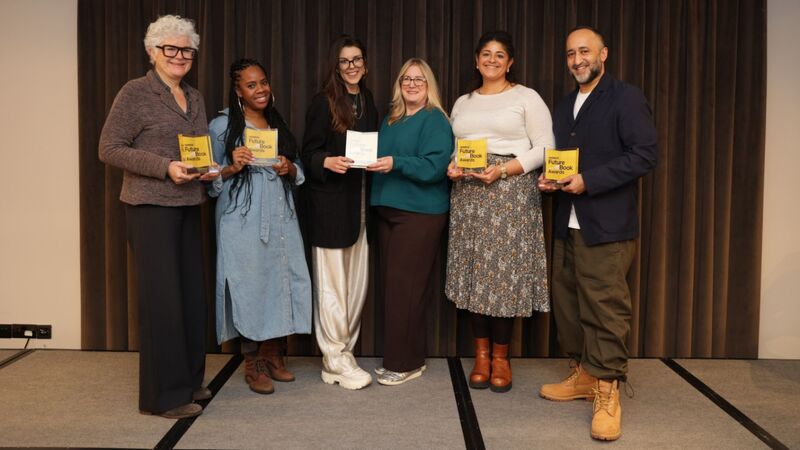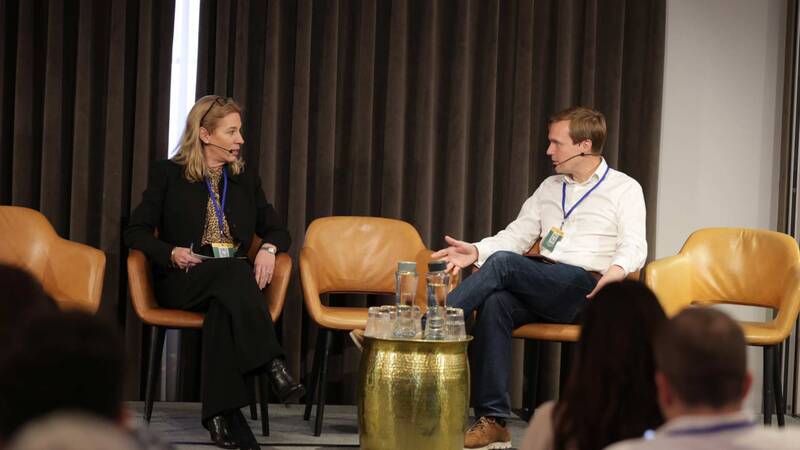You are viewing your 1 free article this month. Login to read more articles.
Samantha Harvey's 'miraculous' novel Orbital wins 2024 Booker Prize
Samantha Harvey has “unanimously” won the Booker Prize for her bestselling astronomical novel Orbital (Jonathan Cape), making it the first space-set novel to take the gong and the shortest-in-length winner in 45 years.
The first female Booker winner in five years, Harvey’s slim-line novel is the biggest seller of the shortlist so far and is the second-shortest book ever to win the prize. The 136-page book covers the briefest timeframe of any book on the shortlist, taking place over just 24 hours.
Harvey received £50,000 and a trophy, which was presented to her by Paul Lynch, last year’s winner, at a ceremony held at Old Billingsgate in London this evening (12th October). The event was hosted by Samira Ahmed and broadcast live as a special episode of BBC Radio 4’s “Front Row” and livestreamed, with additional red-carpet coverage from actor Jessica Knappett.
Its publisher PRH revealed it would be printing 100,000 copies of the book following the win. In her acceptance speech, Harvey said: “I was not expecting that. We were told that we weren’t allowed to swear in our speech, so there goes my speech. It was just one swear word 150 times.”
She also revealed she had almost given up writing the book, adding: "Why on earth would anybody want to hear from a woman at her desk in Wiltshire writing about space, imagining what it’s like being in space, when people have actually been there? I lost my nerve with it, I thought, I don’t have the authority to write this book.” However, she said even astronaut Tim Peake had been "very nice about it".
Orbital, which is Harvey’s fifth novel and sixth book, takes place over a single day in the life of six astronauts and cosmonauts aboard the International Space Station. During those 24 hours they observe 16 sunrises and 16 sunsets over the silent blue planet, spinning past continents and cycling past seasons, taking in glaciers and deserts, the peaks of mountains and the swells of oceans. Written throughout successive lockdowns, Harvey almost gave up on the book a few thousand words in.
Chair of the judges, Edmund de Waal, said of the book: “Everyone and no one is the subject, as six astronauts in the International Space Station circle the earth observing the passages of weather across the fragility of borders and time zones. With her language of lyricism and acuity Harvey makes our world strange and new for us.”
At the press briefing on Tuesday morning (12th November), de Waal explained more behind the decision: “This beautiful, miraculous novel… the acuity of her language was something we talked about [and how] Harvey makes our world strange and new for us.” He dubbed it is “a classic book, one of the great Booker novels”.
De Waal added: “She makes our wounded world something for contemplation, something deeply resonant. And we feel in this in this extraordinary year of fiction—where we have wanted to bring to the fore how fiction inhabits precarious lives in all parts of the world, the interiority of people who have been overlooked or marginalised, to find a novel which brings an intensity of intention to the precarious and precious world in this miraculous novel—is something we are enourmously and unanimously happy to announce.”
He praised the intensity of the book: “Books like this are crystalline, if you looked at my copy of this book, almost every line is underlined and scribbled on because this is a book which demands […] slow reading and sustains re-reading. It is the right length of book for what it is trying to achieve. It is quite a miraculous book.
“Samantha Harvey said she wanted to write a domestic novel in space… I think what this book does profoundly is show the world to us anew in a decentred way.”
He later added: “It was the final hour and a half of bringing it altogether, and this extraordinary symphonic moment of hearing unanimity out of this very carefully calibrated day, of taking our six shortlisted novels… nothing happened fast.”
When asked about the unanimous decision, he said: “It wasn’t a case of saying ‘This is the book’ right at the beginning. We all held our decision-making until later in the day... there was no voting involved or scratching out of lists or darkened room stuff, this was looking each other in the eyes and an extraordinary day of reading.”
Given the many industry figures had tipped Percival Everett’s James (Pan Macmillan), the panel was asked if they could have selected the sole male shortlisted writer given potential backlash.
De Waal said: “The answer is yes, we could have given it to anyone. If you want a more fiercely minded group of people in one room, you should join the panel. We didn’t give a damn about the bookies… Totally background noise… there was absolutely no box-ticking, agendas or anything else in the room, it was simply about a novel.”
Similarly, when asked about if the books’ sales were discussed especially given that Harvey’s was by far the bestseller, De Waal said: “It never crossed the horizon whatsoever. It did give me pleasure, seeing them in booksellers’ windows and thinking ‘I’m not sure they would be in booksellers’ windows if we hadn’t shortlisted them.”
Gaby Wood, chief executive of the Booker Prize Foundation, said: “From a fantastically strong shortlist, they have chosen as their winner a small, strange, beautiful and mighty book by Samantha Harvey, a writer last longlisted for the Booker 15 years ago, who has done nothing but cement and extend her brilliantly original gifts.
“Orbital wins the prize in a year of geopolitical crisis. A book about a planet ‘shaped by the sheer amazing force of human want’, about an ‘unbounded place’ with no wall or barrier visible from space, with all politics ‘an assault on its gentleness’, it is hopeful, timely and timeless.”
Bea Carvalho, Waterstones head of books, praised the choice and the shortlist overall: “We are absolutely delighted that Samantha Harvey’s exquisitely beautiful Orbital has won the Booker Prize. This year’s shortlist has been especially strong for bookshops, with sales through Waterstones up over 200% year--on-year against last year’s six titles.
"Sales of Orbital represented over a third of our sales of the shortlist since its announcement, so from the truly brilliant and commercial shortlist this winner is a bookseller’s dream. Most importantly, this moment affords booksellers the opportunity to share this incredibly special novel with many more readers: we know they will love it."
Carvalho added: "Orbital has been resonating with booksellers and customers since it first appeared in bookshops for its elegance, its precision, its serene and gentle perspective-shifting view of humanity. We can’t wait to welcome Samantha to Waterstones Piccadilly on Thursday, and to celebrate this wonderful book through our bookshops for a long time to come.”
British author Harvey was longlisted for the Booker Prize in 2009 for her debut novel, The Wilderness (Jonathan Cape).
De Waal was joined on this year’s judging panel by award-winning novelist Sara Collins; fiction editor of the Guardian Justine Jordan, writer and professor Yiyun Li; and musician, composer and producer Nitin Sawhney. They chose the winning title from 156 books published between 1st October 2023 and 30th September 2024 and submitted to the prize by publishers.
The prize was last won by a British author when Douglas Stuart won in 2020 for Shuggie Bain (Picador). Harvey is the 21st woman to win since the prize’s inception in 1969 and this year‘s shortlist featured the largest number of women in the award’s history, with five women and one man represented.
Jonathan Cape, has published eight previous Booker Prize winners, more than any other publisher.
The other books on the shortlist were Held (Bloomsbury) by Anne Michaels, Creation Lake (Jonathan Cape) by Rachel Kushner, James (Mantle) by Percival Everett, The Safe Keep (Viking) by Yael van der Wouden, and Stone Yard Devotional (Sceptre) by Charlotte Wood.





